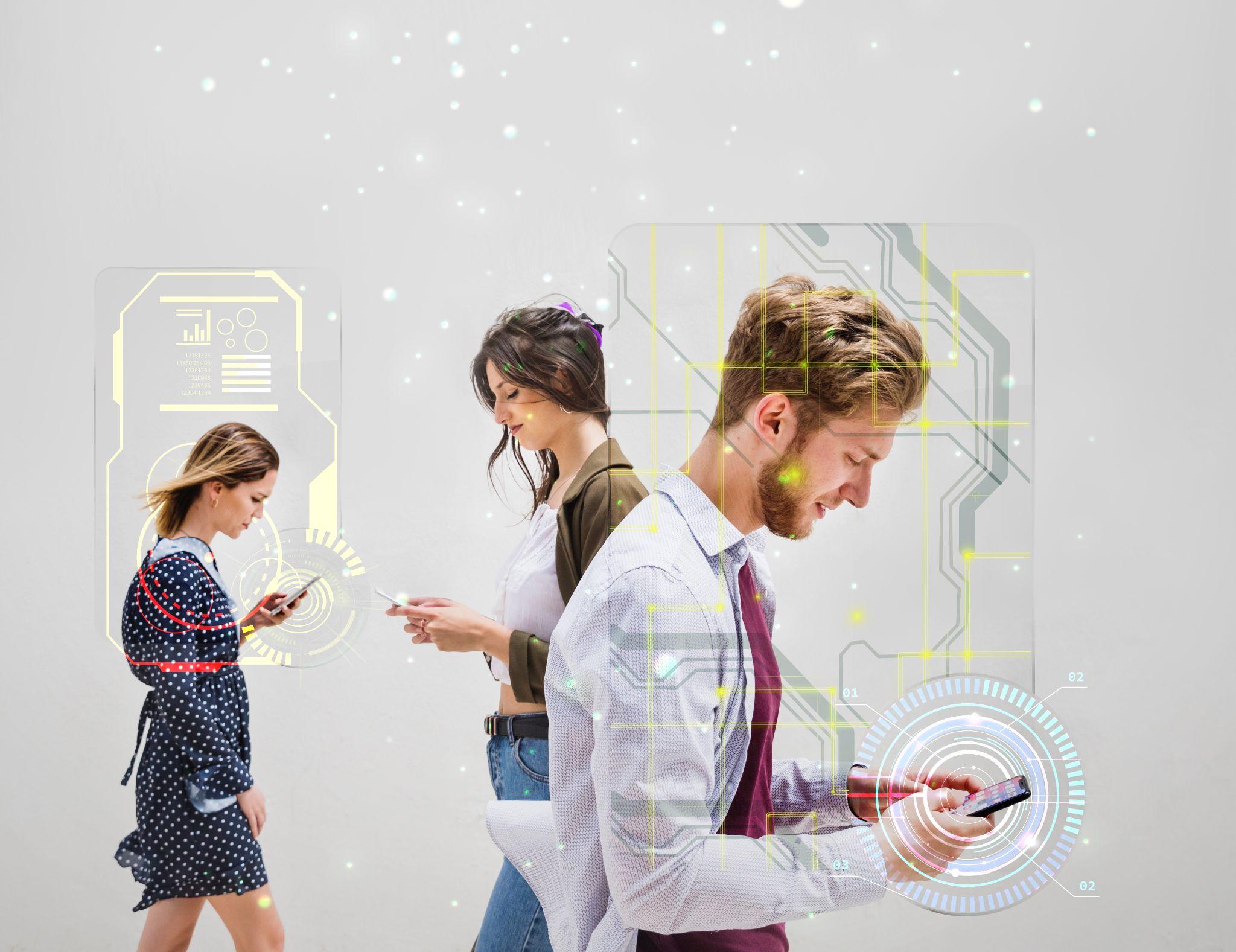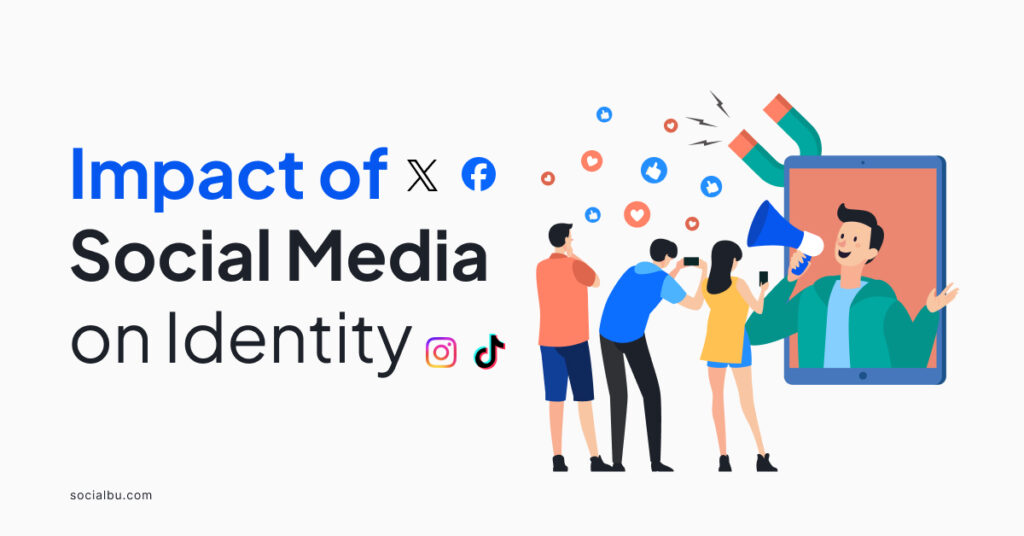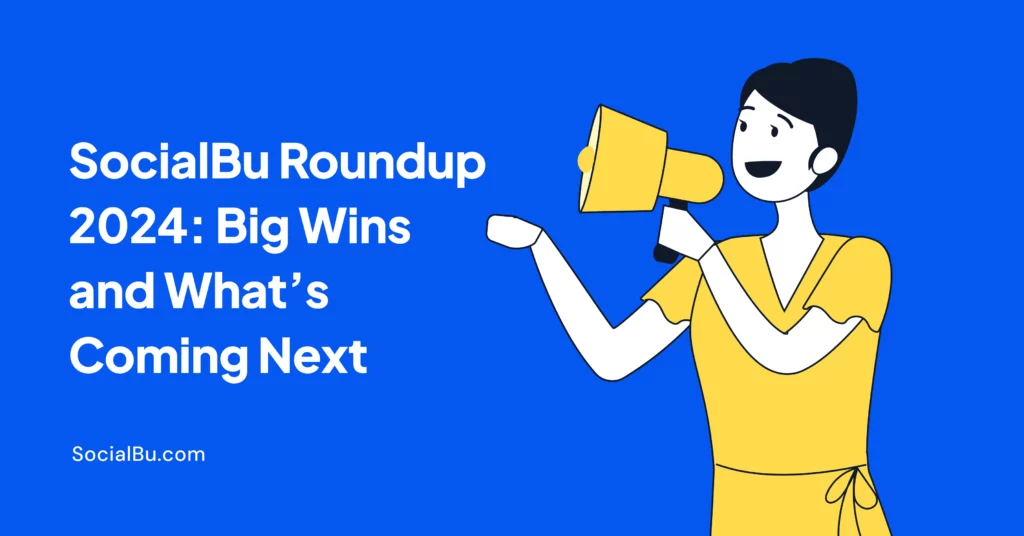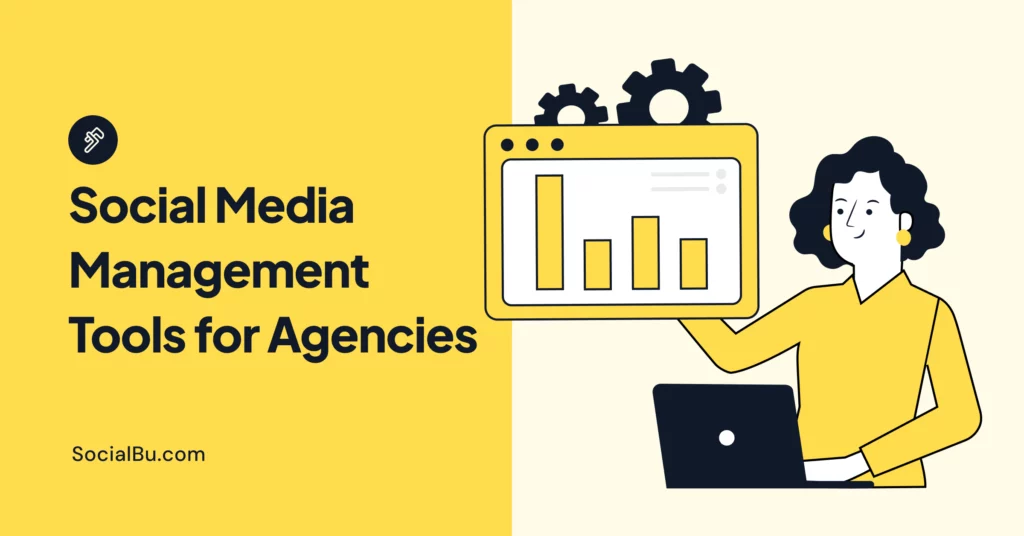Whether it’s TikTok, Facebook, YouTube, or Reddit, Social media has become integral to our lives. These platforms connect us with people, ideas, and cultures across the globe; however, it’s worth asking about the impact of social media on identity, self-perception, and reality.

Fortunately, this post will explore how social media platforms shape our identities, influence our emotions, and challenge our authenticity. We will also discuss the benefits and drawbacks of social media for our personal and social development and offer some tips on how to use social media responsibly.
How Social Media Creates Virtual Realities That Influence Our Identities
Social media’s effect on the human mind is possible through the virtual realities it creates, which are vastly different from the truth. Virtual reality Is a simulated environment that one can experience through a device, such as a smartphone, a computer, or a headset.
These artificial environments offer a captivating level of immersion and gratification, reminiscent of the excitement of playing games at no deposit free spins at Slotozilla Canada. However, social media takes this experience to a whole new level.
For example, some social media platforms allow us to use filters, avatars, or algorithms to alter our appearance, personality, or preferences. These features can help us express ourselves, customize our profiles, or find relevant content, but they can also affect how we perceive ourselves and others.
Effects of Virtual Realities
Virtual spaces allow more interaction and control over our online persona, giving intense customizability to produce our desired result. However, this freedom has some noteworthy effects on different core areas of our identity.
Self-Perception
For instance, filters can make us look more attractive, confident, or successful. Still, it can also lower our self-esteem, increase dissatisfaction, or create unrealistic expectations compared to reality.
This conclusion also applies to avatars as they make us feel more free, creative, or adventurous. However, they can also detach us from our authentic selves, increase frustration with our looks, and create identity confusion.
Self-Expression
Continuous social media usage can influence how we communicate ourselves, our values, and our opinions. This conclusion is based on how algorithms help us find content, people, or groups that match our interests, beliefs, or goals but also limit our exposure, reinforce our biases, or create echo chambers. In other words, social media platforms create a conducive avenue to share our thoughts or experiences but can also affect our honesty and originality.
Self-Esteem
A big concern recently is how people use social media metrics to determine the value or relevance of their efforts. For example, while likes, comments, or shares can help users measure their impact or feedback, multiple studies show that it can also affect our mood, motivation, or mental health.
Social Media’s Influence on Emotions and Well-Being
Besides our identities and expressions, social media can negatively or positively alter our emotions and well-being. This effect is due to “emotional contagion,” which involves transferring emotions with others, consciously or unconsciously.

Emotional contagion can occur through verbal or non-verbal cues, such as facial expressions, tone of voice, or body language. However, it can also happen through digital cues like text, images, or videos. Since social media platforms are full of these emotional cues, it will naturally affect how one feels, reacts, and behaves.
Effect on Emotions
As previously mentioned. Social media comes with different factors that entertain but also adversely affect emotions. For example:
- Likes, comments, or shares;
- Stories, posts, or statuses;
- Groups, pages, or profiles.
Likes, Comments, or Shares
These platforms allow users to give creators feedback via likes, comments, and shares, which creates appreciation, validation, and feelings of support. But at the same time, these people can feel anxious, insecure, or rejected.
The feeling depends on the feedback’s number, quality, and timing alongside the user’s goals or expectations. In the end, it demonstrates the impact of social media on identity and self-esteem if left unmanaged.
Stories, Posts, or Statuses
The type of content you consume can make you feel inspired, informed, or entertained, but it can also make you feel jealous, angry, or sad. Despite several sources pointing out that social media isn’t an accurate depiction of reality, people still feel a significant impact of social media on identity and emotions depending on the content type, source, and relevance.
Groups, Pages, or Profiles
Social media communities cow in groups, pages, subreddits, etc., making users more connected and engaged with their interests. However, users may feel pressured, isolated, or manipulated depending on the content type.
For example, a Facebook group filled with entrepreneurs can inspire people looking to fuel their drive. At the same time, watching people progress in an area where you struggle can kill your desire to continue.
How Social Media Challenges Our Authenticity
Authenticity is the quality of being true to oneself, one’s values, and beliefs; that’s important for our identity, as it helps us develop a consistent sense of self, express ourselves correctly, and relate to others authentically.
Unfortunately, this isn’t easy to maintain on social media, as many factors can challenge our authenticity. One prominent example is fake news or misleading information.
Intentionally or unintentionally misleading information can cause cracks in our authenticity where we share or adopt inaccurate facts. Whether through memes or a few harmless TikTok, false details can cause us to doubt our knowledge or opinions, therefore stifling communication in fear of being wrong. Hence, it remains crucial to review posts before sharing.
Several researchers have explored the misinformation problem of social media, with many citing the false claims made during the COVID-19 pandemic. Fact-checkers now exist to combat the problem, but they’re not always available to save an impressionable person.
Tips to Use Social Media Responsibly
Now that you understand how social media affects our identity and reality, how does one navigate the virtual world correctly? Here are some tips we recommend:
- Limit your screen time: Set a time limit for how long you spend on social media daily, and stick to it. Consider using tools to help you manage your screen time and turn off distracting notifications.
- Verify your sources: Before you believe, share, or comment on any information you see on social media, check its source and accuracy. Use reputable websites or fact-checkers to verify the data and report any misleading information you encounter.
- Be respectful: Treat others on social media as you would like to be treated in real life. In other words, be polite and constructive and avoid online abuse.
- Be yourself: Stand by your values and beliefs on social media, and do not change or hide your identity or preferences to please others. Also, avoid comparing yourself to others or setting unrealistic standards for your social media posts.
Note that social media provides entertainment and validation that becomes addicting quickly, and while these platforms evolve daily, these tips can help control their influence.
Conclusion
Ultimately, social media effects target three main areas – our identity, well-being or emotions, and authenticity. These factors combine to create our realities, and depending on the type of content consumed and our expectations, this influence can be negative or positive.
Therefore, we recommend using these apps responsibly by limiting your screen time, verifying your sources, being respectful, and maintaining your integrity. Following these tips can help manage how much influence social media has on your identity.







